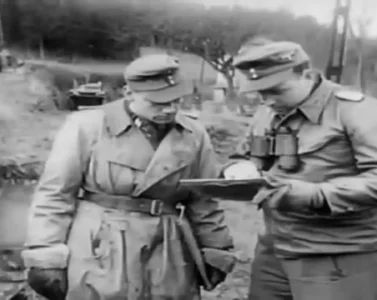- Support
- About MegaMilitary

About MegaMilitary
MegaMilitary takes an entirely new look at the history of warfare through the ages. We take as a starting point the people behind warfare and look at their involvement, leadership and impact on the outcome of battles, campaigns and wars over centuries.
The history of how warfare developed from the chariots of the ancient world to the smart weaponry of the 21st century is complex. It is not the intention of MegaMilitary and the (small) team behind it to cover every war and battle in detail. Instead, campaigns and conflicts that exemplify major developments in tactics and the waging of war have been chosen for our content.
A wide historical perspective is vital to understand the roots of conflicts in the modern world. Without an appreciation of the supremacy of defensive warfare in the First World War, for example, the terrible cost in lives suffered by all involved sides is difficult to understand.
Our view on Military History
Military history is not the most respected branch of historical inquiry in academic circles. In part, this is because of (and despite) its popularity with the public and its importance in educating professional military personnel. The root of the disrespect, however, mostly lies in its subject: war. There is deep suspicion that to write about war is to approve of it, even to glorify it - a suspicion not unfounded in the history of the writing of military history.
But to recognize the importance of a subject in the study of the past does not mean approving of it, as any historian of the Holocaust will attest. Military history today is practiced by as broad a range of historians, in their political, ideological, and methodological interests, as any other branch of history, and both its topics and its methods lie (and should lie) solidly in the mainstream of historical study.
In most places, by the time writing was invented, there were already kings and armies. It did not take long for kings to recognize the value of the new communication technology in publicizing and thus glorifying their exploits. Military victories proved especially useful for such publicity, as they showed the ruler's capacity to protect his subjects, and to subject foreign populations with their riches to his rule (presumably to the benefit of the kingdom). Even more powerfully, the image of a war leader as presented in writing and pictures spoke directly of the very qualities most likely to enhance a ruler's reputation: strength, decisiveness, glory, even fearsomeness. A ruler with a good military publicist appeared favored by the gods.
Military history is therefore the oldest form of historical writing in many cultures. It has long since ceased to be the exclusive preserve of publicists for outstanding leaders, although such types certainly still exist in abundance and the genre has produced some great literature.
Some of the finest minds in several classical civilizations turned to writing history, the history of wars in particular, partly in reaction to the tradition of heroic epics. Their more analytical approach to the study of history did not replace popular war tales, but coexisted with it. In both fictional and non-fictional forms, the appeal of writing about war remains. In many places today, military history continues to be one of the most popular sorts of history and of non-fiction generally. This popularity still extends beyond the written word, just as it did in the days of oral traditions of war tales.
Yet that very popularity means that there are many types of military history and a sometimes overwhelming volume of publications. The quality of this outpouring is inevitably uneven, and military history has not always enjoyed a high reputation in academic circles. The popularity of military history therefore complicates the problem of getting to know the field.
- {{#owner}}
- {{#url}} {{#avatarSrc}}
{{name}} {{/url}} {{^url}} {{#avatar}} {{& avatar}} {{/avatar}} {{name}} {{/url}} - {{/owner}} {{#created}}
- {{created}} {{/created}}























